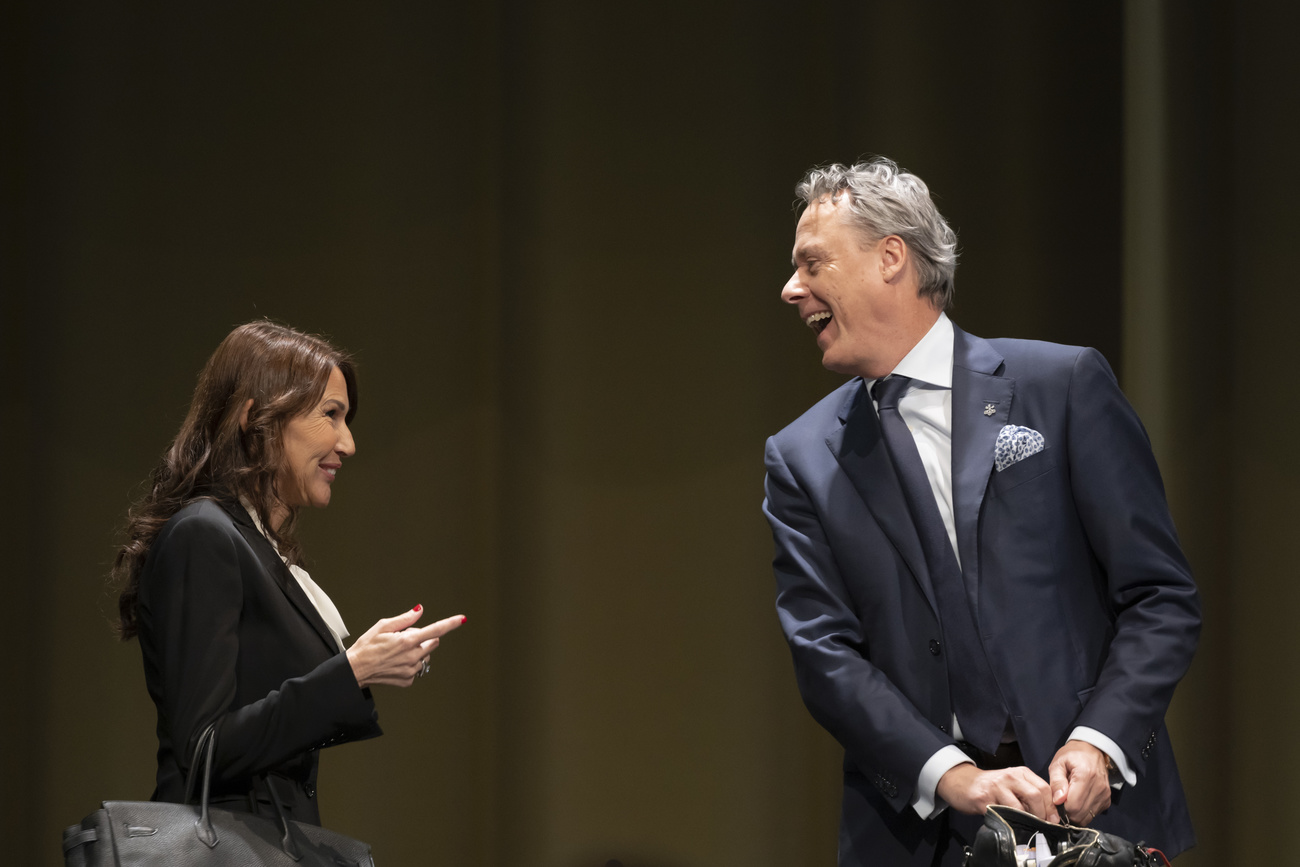
Switzerland Today
Dear Swiss Abroad,
More expensive holidays, apartment rentals, petrol, eggs, public transport… inflation is starting to bite in Switzerland. The latest victim? Chocolate bunnies.
Chocolate manufacturers are reportedly putting up their prices by about 10-15% this Easter due to higher costs for raw materials – cocoa beans, butter or sugar – transport and electricity.
Read on for other news and stories from Switzerland.

In the news: Montreux Jazz programme, Google, Facebook and transparency, and avalanche deaths.
- Bob Dylan, Iggy Pop, Gilberto Gil, The Gabriels and Wet Leg are among a host of confirmed artists and new talents who will take the stage at this year’s Montreux Jazz Festival from June 30 to July 15.
- The Swiss government plans new legislation to make big online platforms like Google, Facebook, YouTube and Twitter more transparent and give users more rights.
- Fifteen people died in avalanches in the Swiss Alps this winter, which was much warmer and drier than normal with average snow depths well below average, according to the Institute for Snow and Avalanche Research (SLF).External link
- The Swiss private banking and investment group Vontobel has announced that it has terminated business with clients in Russia as a result of the war in Ukraine.
- The government proposesExternal link that from 2024 new electric vehicles be subject to a 4% levy, like all other categories; electric vehicles are currently exempt.

UBS executives seek to reassure investors over Credit Suisse takeover.
UBS’s takeover involves “a huge amount of risk”, the bank’s chair Colm Kelleher warned shareholders at its annual general meeting in Basel todayExternal link. The Irish banker said the acquisition of Credit Suisse, Switzerland’s second-biggest bank, was a “milestone” in global finance that would accelerate the bank’s existing strategy — with growth focused in the US and Asia — but warned “this is not in any way an easy deal to do”.
Following years of scandals and crippling losses, the Swiss government invoked emergency powers to push through the sale of 167-year-old Credit Suisse to rival bank UBS for CHF3 billion on March 19, while the Alpine state put up more than CHF200 billion of support and guarantees.
The hastily arranged rescue angered and unsettled not only both banks’ shareholders but also many in Switzerland. The new UBS will have total assets of around CHF1.6 trillion ($1.75 trillion), roughly double Swiss gross domestic product.
A survey by political research firm gfs.bern found a majority of Swiss did not support the deal.
The Swiss Financial Market Supervisory Authority (FINMA) today held a press conference in the Swiss capital, where senior officials declared they would push for more power to sanction and name and shame banks that break the rules, following the Credit Suisse collapse. “Our instruments hit their limits in extreme cases as seen in the case of Credit Suisse,” FINMA President Marlene Amstad told reporters in Bern.
Urban Angehrn, chief executive of FINMA, told reporters at the press conference that the merger with UBS was “the best option” and one that “minimised risk of contagion and maximised trust”.
At the Credit Suisse shareholder meeting in Zurich yesterday, chair Axel Lehmann apologised on behalf of himself and others who were “behind the wheel” when Switzerland’s second-biggest bank was forced to concede defeat last month.
During the meeting, Credit Suisse shareholders lined up to express their anger and frustration at the bank’s impending demise by voting down a proposed CHF34 million pay package for managers.
More

Switzerland to host Women’s Euro 2025.
The small Alpine nation beat three rival bids to be named the next host of the Women’s European Football Championship.
The Swiss candidacy triumphed over France, Poland, and a joint Nordic bid from Denmark, Finland, Norway and Sweden, UEFA’s executive board said in Lisbon yesterday.
It’s the first time that Switzerland will organise the tournament. It previously jointly hosted the men’s version of the championship in 2008, along with neighbouring Austria.
In a statement, president of the Swiss Football Association (SFA) Dominique Blanc said it was a “historic day for Switzerland, the SFA and women’s football” and the decision would “shape the development of women’s football at all levels”.
The SFA confirmed that the games would be played in the cities of Basel, Bern, Geneva, Lucerne, Sion, St Gallen, Thun and Zurich.
The tournament will have 16 teams playing 31 games over about three weeks in June-July 2025. As hosts, the Swiss team qualifies automatically.

In compliance with the JTI standards
More: SWI swissinfo.ch certified by the Journalism Trust Initiative

